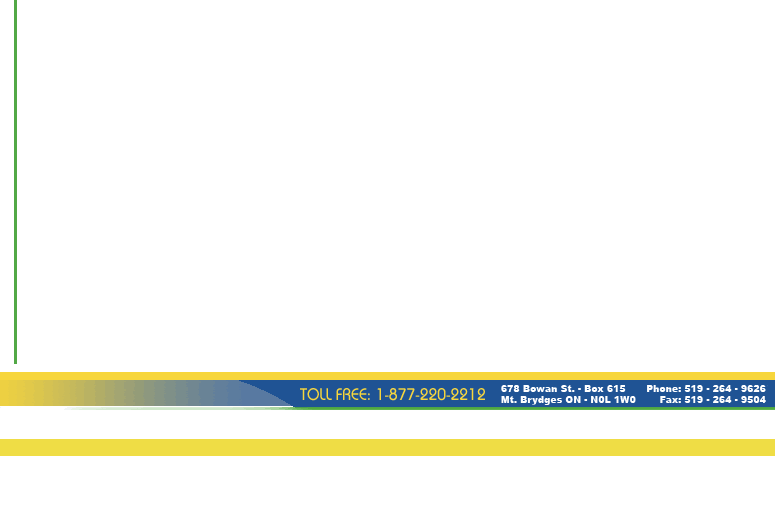Maximum
Swine
Marketing Ltd. Newsletter
Hog Commentary for
December 9rd, 2004
Hog Markets
Cash prices climbed late last week to
their highest price of the year (the highest price of the last
7-years actually.) The strong market for hogs in early December
is supported by fewer hogs than are necessary to meet packers
needs and continued strong demand for pork. Cutout values moved
over $80 again last week for the fist time since early August.
The last time prices approached current levels in the month
of December was in 1996. Strong cash prices pushed lean hog
futures to contract highs across the board last week. The highs
were short-lived, as a falling cash market last Friday, and
Monday of this week, dropped the board limit down on Monday.
The Dec contract is now at a $5.00 discount to the cash, pricing
in $1/day drop in the cash from now until expiry next Tuesday
Expectations are for the cash to trade lower this week as packers
are finally able to find enough hogs. The impact, however should
be minimal as prices are incredibly high and will still be in
good shape after one week of lower cash prices. The futures
market after Monday¹s drop will likely continue trading
lower in the short term as technical indicators had the market
overbought at the end of last week. The long term outlook still
remains strong, with demand continuing to support strong prices
well into 2005.
Feed Markets
Cash corn prices had an interesting week dropping to new lows
before climbing off the short-term bottom supported by the recent
collapse in the market in the Canadian dollar. Futures were
pressured to new lows of $1.91 US per bushel in the nearby December
contract. March also reached new lows of $2.02 1/2 per bushel
on Thursday of last week. Short covering provided a small bounce
in the market early this week, however ideas of increased corn
acres in 2005 continued to limit major gains. Increasing production
costs for soybeans with Asian rust now present in the US is
thought to encourage more corn acres for the next crop season.
Soymeal prices were higher this week in Canada due to a drop
in the exchange rate while US prices continued to trade near
contract lows. Futures were pressured during last week¹s
trade but found support from commercial hedging. Basis changes
from US crushers were the main contributor to increased soymeal
costs. A narrowing basis supported the cash by $8.00 Can as
crushers report high levels of forward priced meal for this
month. Forward contracting, which occurred on the price slide
of the past 3 months has accounted for a large portion of soymeal
capacity in the Midwest. Spot meal may be hard to come by resulting
in the higher cash prices.

